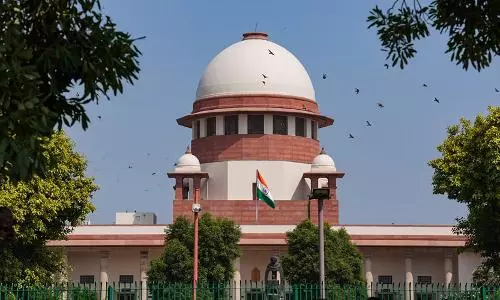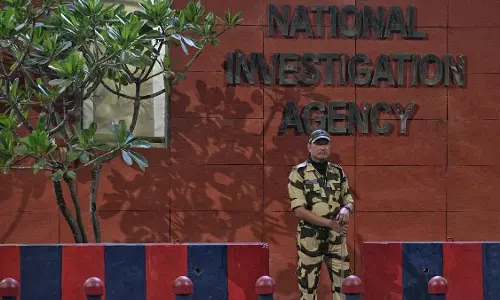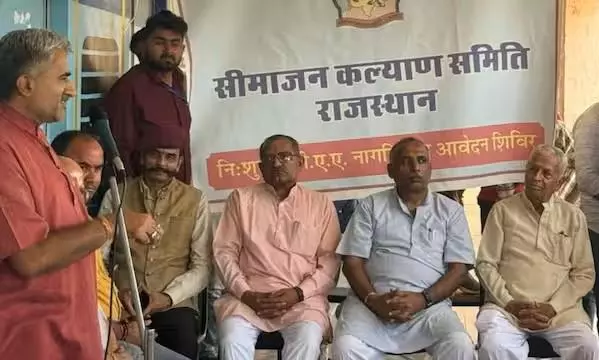
Hindus from Pakistan receive 'eligibility certificates' for citizenship from RSS-linked group
text_fieldsA Hindutva group in Rajasthan affiliated with the Rashtriya Swayamsevak Sangh (RSS), the parent body of the ruling BJP, has stirred controversy by organizing camps to issue ‘eligibility certificates’ to Hindu refugees from Pakistan, igniting further debate over the implementation of the contentious Citizenship Amendment Act (CAA).
The group, known as Seemajan Kalyan Samiti, claims to have assisted 330 Hindu refugees residing in Jaisalmer, Barmer, and Jodhpur districts to file their applications on the citizenship website launched by the Union Ministry of Home Affairs. These eligibility certificates, issued by locally reputed community institutions or local priests, validate the religion of the applicant and affirm their continued faith.
Key figures within the group, including advocate Vikram Singh Rajpurohit and office-bearer Tribhuvan Singh Rathore, assert the legitimacy of their actions, citing the organization's status as a registered "community-based" entity. Rathore, responsible for signing the eligibility certificates, maintains that the group is qualified to issue such documents under the provisions of the Citizenship Amendment Act.
The Citizenship Amendment Act, passed amid widespread criticism, aims to expedite citizenship for refugees from six minority religious communities - Hindus, Sikhs, Buddhists, Jains, Parsis, and Christians - from Bangladesh, Afghanistan, and Pakistan. However, its exclusion of Muslims has drawn significant backlash, with many fearing its potential use in conjunction with the National Register of Citizens to target and marginalize them.
Rajpurohit highlights the plight of individuals who have been residing in India for years without citizenship, citing the case of a woman who arrived in 1998 but remains undocumented. He claims there are thousands in similar situations, particularly in Jodhpur, where an estimated 5,000-6,000 people await citizenship.
The process for obtaining citizenship under the CAA involves the formation of an Empowered Committee and District Level Committees to review online applications. Applicants must provide evidence of their country of origin and proof of entry into India before the cut-off date of December 31, 2014, in addition to a certificate of belonging to one of the faiths listed.
While proponents argue that the CAA offers a lifeline to persecuted minorities, critics warn of its potential to further marginalize and discriminate against Muslims. The looming spectre of the National Register of Citizens, coupled with the actions of groups like Seemajan Kalyan Samiti, adds fuel to an already fiery debate surrounding citizenship and religious identity in India.






















